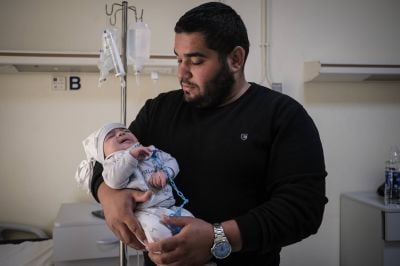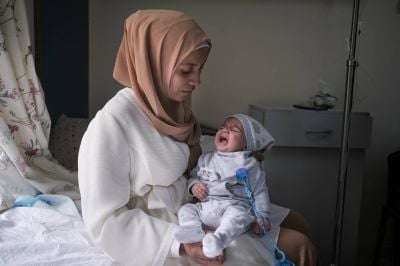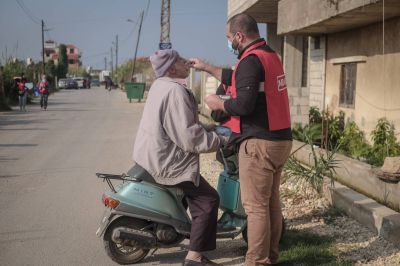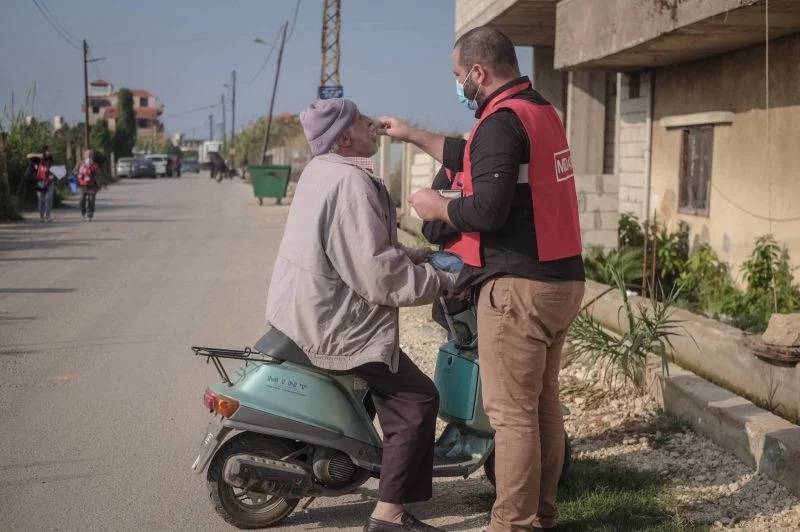
The elderly have priority for the vaccines, unless they object. (Credit: João Sousa/L'Orient-Le Jour)
It was half past noon in the municipality of Bhanin, in the Minyeh district near northern Lebanon’s Tripoli when the Health Ministry convoy arrived.
A few dozen residents had gathered to receive vaccines as part of the ministry’s vaccination campaign in the Akkar area, which has the highest number of cholera cases since the outbreak in Lebanon began on Oct. 5.
After medical staff and prisons have been vaccinated, 600,000 additional vaccines are now slated to be administered within the coming three weeks to the residents of northern Lebanon and the Bekaa Valley, the two most affected areas.
In severe cases, cholera causes dehydration and requires hospitalization.
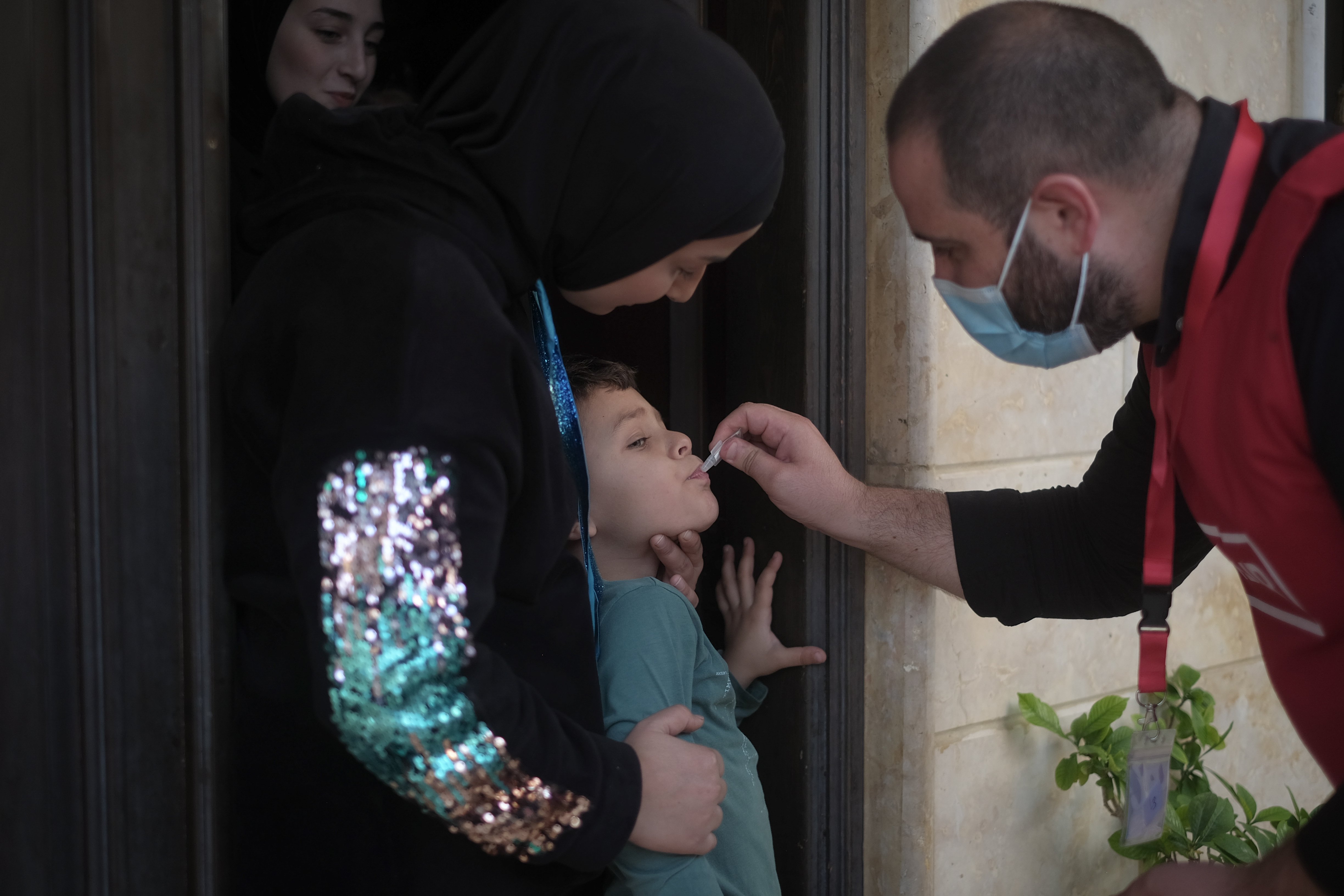 Door-to-door cholera vaccinations for residents of Bhanin, Nov. 12, 2022. (Credit: João Sousa/L'Orient-Le Jour)
Door-to-door cholera vaccinations for residents of Bhanin, Nov. 12, 2022. (Credit: João Sousa/L'Orient-Le Jour)
“We are here to vaccinate adults and children, Syrian and Lebanese, in coordination with the United Nations High Commissioner for Refugees [UNHCR] and in support of the efforts of the Lebanese Red Cross and Doctors Without Borders,” caretaker Health Minister Firass Abiad said during a press conference on-site.
“Workers from the French NGO Medair have been traveling to the area since this morning to vaccinate those who wish to be vaccinated and register their details in the system set up by the ministry,” he said, adding that “the main problem remains the infrastructure and wastewater treatment in the country.” Cholera largely spreads through contaminated water or food.
Until Saturday, there were 532 confirmed cases of cholera, 3,340 suspected cases and 18 deaths due to cholera in Lebanon. The confirmed case count rose to 536 by Sunday, with no new deaths, according to the latest Health Ministry count.
Abiad has repeatedly explained that the vaccination campaign is intended to contain the illness in the areas where it broke out, in order to limit its spread and prevent it from becoming endemic.
‘All we want is to leave this country’
As of Sunday, 15 cholera cases have been confirmed by the Health Ministry in Minyeh, while the vaccination campaign aims to prevent further spread.
“We have stopped eating raw vegetables and are disinfecting the water with chlorine. But no vaccine. There are already enough health problems at home,” Nidaa told L’Orient-Le Jour in her hairdressing salon, empty of customers, where she was drinking her morning coffee with neighbors.
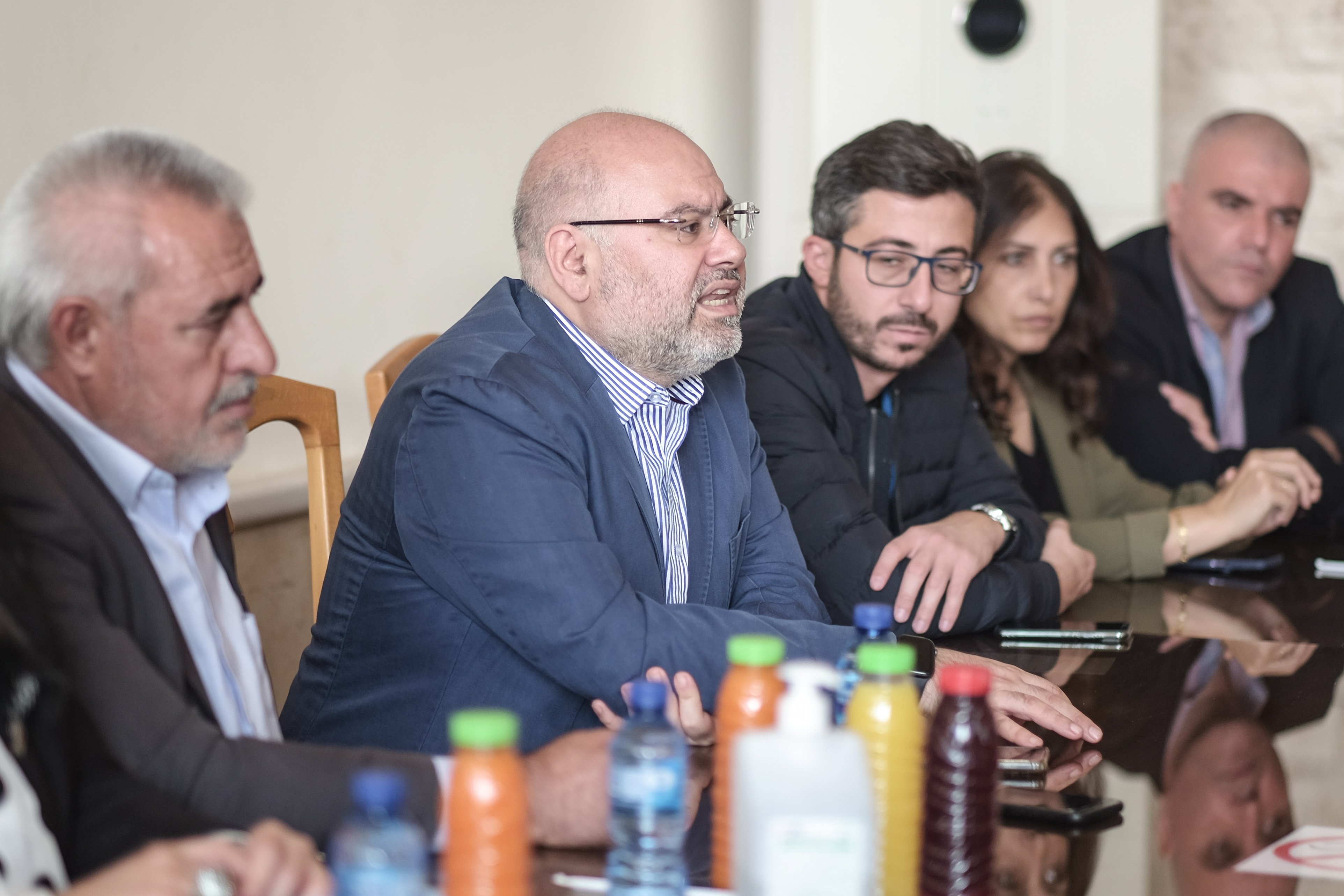 Caretaker Health Minister Firass Abiad at a press conference for the launch of the vaccination campaign in Bhanin, on Nov. 12, 2022. (Credit: João Sousa/L'Orient-Le Jour)
Caretaker Health Minister Firass Abiad at a press conference for the launch of the vaccination campaign in Bhanin, on Nov. 12, 2022. (Credit: João Sousa/L'Orient-Le Jour)
“I already got my three doses for the coronavirus, and I am waiting for the cholera vaccine,” an older friend of Nidaa said.
A few steps away, in the Syrian refugee camp of Sofrein Sabea, in the Bhanin district, families jostled for vaccines in the thin alleyways between tents torn apart by the latest torrential rains.
“Cholera is nothing compared to what we are going through,” said Ahmad*, a young agricultural worker who arrived from Syria about 10 years ago and has been living in this makeshift camp ever since. “Our houses have been flooded and no one has come to help us. All we want to do is leave this country. Anywhere but here.”
To protect themselves from the newest plague that has added to their misfortunes, residents in the Sofrein Sabea camp said they have stopped eating vegetables and are instead surviving on starchy foods. Meat has long been an unaffordable commodity.
“There is no cholera here, but everyone is going to get vaccinated. We are very careful because other camps are contaminated. Prevention is better than a cure,” said Imad, father of three children, all of whom have special needs.
“I am not afraid of the vaccine because it protects us from cholera,” Yakout, a young girl, said after she bravely swallowed the whitish liquid medicine.
Rym, for her part, as she waited for her turn, said, “All I want is to join my aunt in Sweden.”
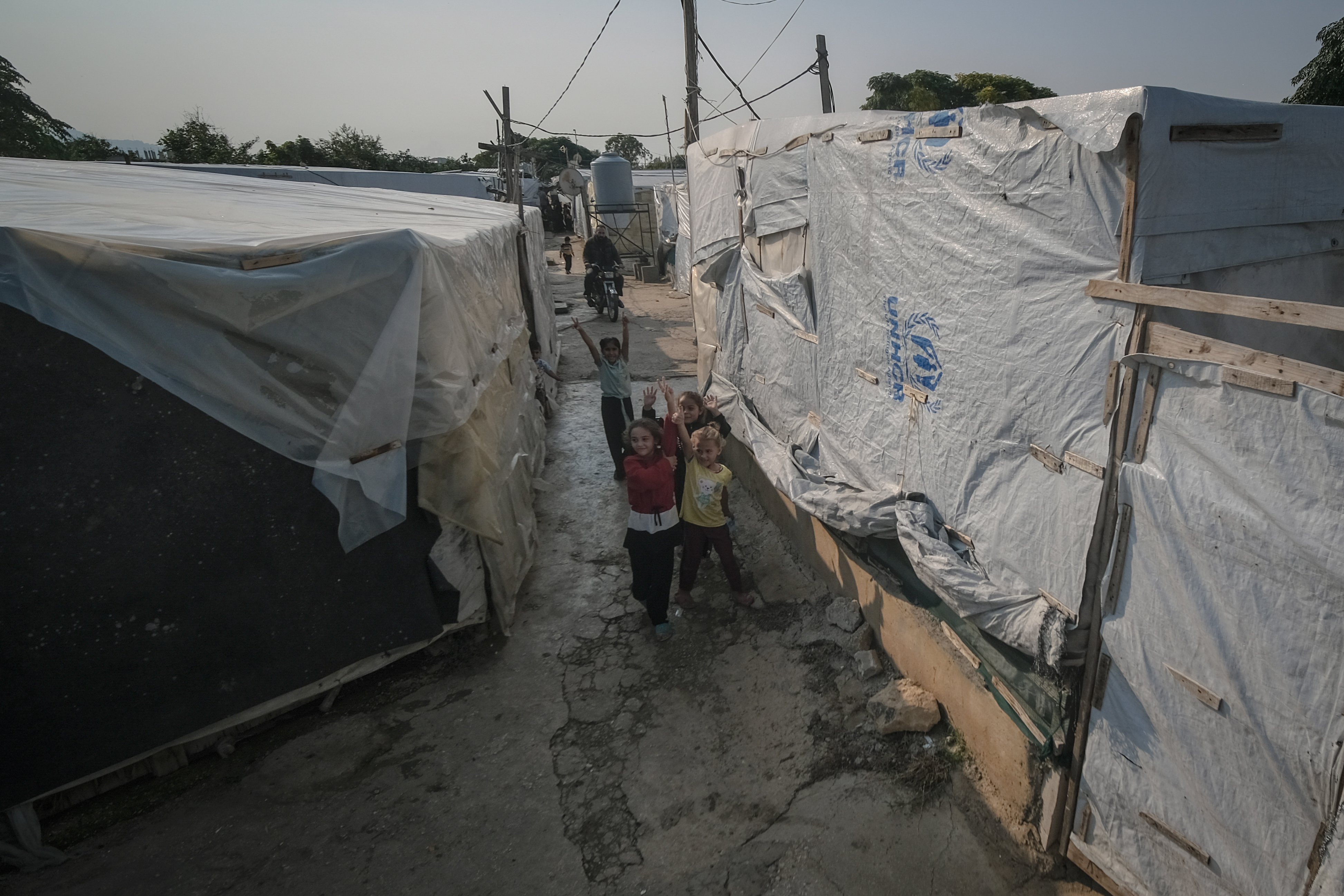 Between the tents of a refugee camp near Bhanin. (Credit: João Sousa/L'Orient-Le Jour)
Between the tents of a refugee camp near Bhanin. (Credit: João Sousa/L'Orient-Le Jour)
Just a precaution
“In addition to the camps, Medair’s teams are going door-to-door visiting the people of Bhanin,” Dalal Harb, a UNHCR spokesperson, told L’Orient-Le Jour.
She added that people who are not showing any symptoms are also being administered the vaccine, “only if they want it.”
“Some people say they don’t need it or are afraid because they have already been vaccinated against COVID-19,” Mounir, a worker at Mediar, said.
Equipped with his cooler and his registration sheet, Mounir roamed the roads, stopping those passing by on foot or on scooters since the beginning of the day.
“We’ll come back tomorrow, maybe they’ll have changed their minds,” he said.
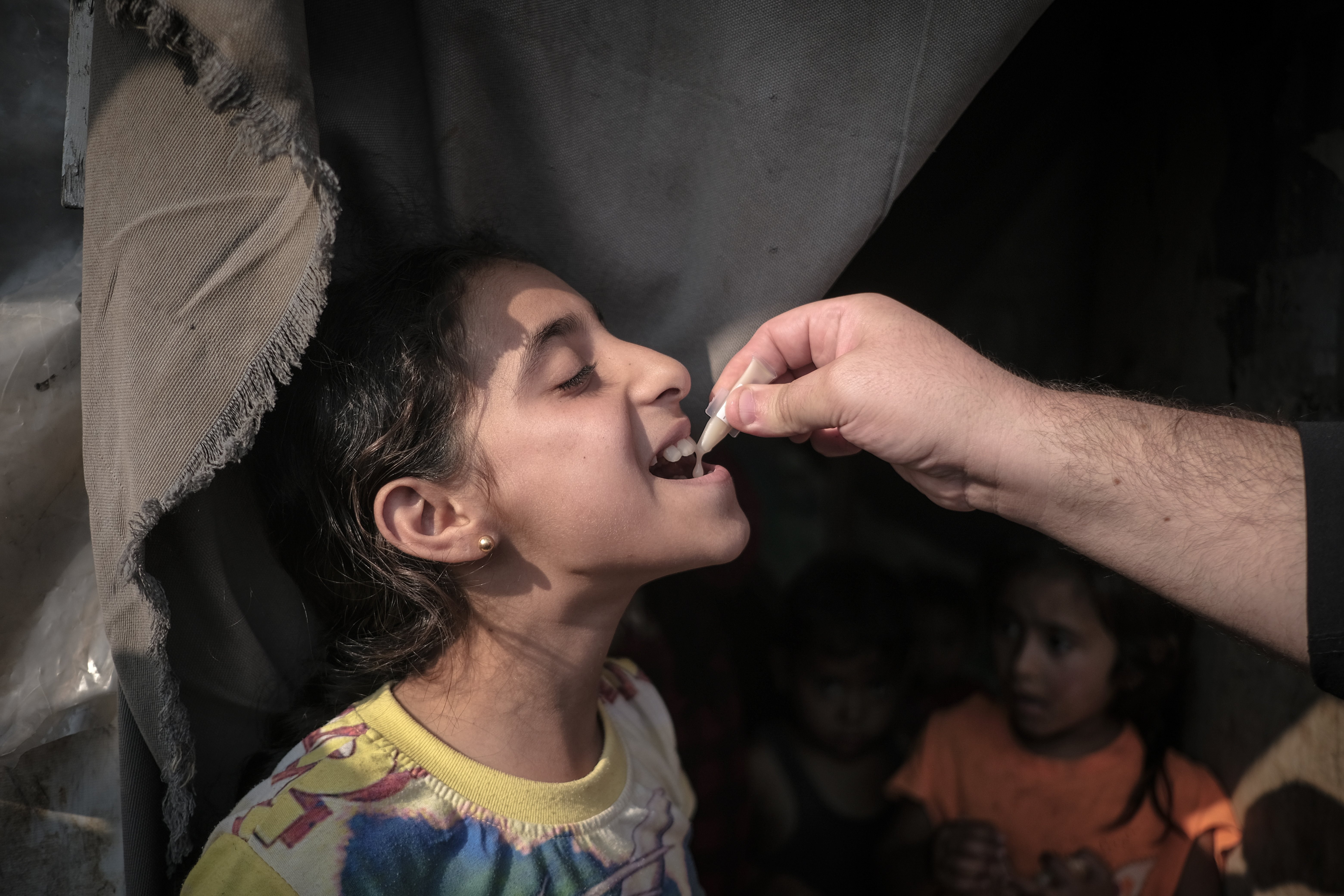 “I'm not afraid of the vaccine, because it protects us from cholera,” a girl from the Sofrein Sabea camp in Bhanin told L'Orient-Le Jour. (Credit: João Sousa/L'Orient-Le Jour)
“I'm not afraid of the vaccine, because it protects us from cholera,” a girl from the Sofrein Sabea camp in Bhanin told L'Orient-Le Jour. (Credit: João Sousa/L'Orient-Le Jour)
“We carefully wash fruits and vegetables at home. My wife and children don’t need the vaccine, I’m the only one who goes out to work,” said a father from the doorway of his modest home.
“What is this about?” asked his neighbor, unaware of the cholera vaccine campaign.
“We already protect ourselves by disinfecting the water. The vaccine is just a precaution,” said Nazira, another resident of the neighborhood.
Unless they strongly object, the elderly are automatically vaccinated, according to the vaccine program.
“It is important because we are close to a camp and the Syrian community is very affected,” Mahmoud, a 60-year-old man from the area said. “We can’t afford to go to the hospital if we are sick. The costs are too high, and no one is there to help us.”
*The names of all Syrian refugees mentioned in this report have been changed to protect their identities.
This article was originally published in French in L’Orient-Le Jour. Translation by Sahar Ghoussoub.
